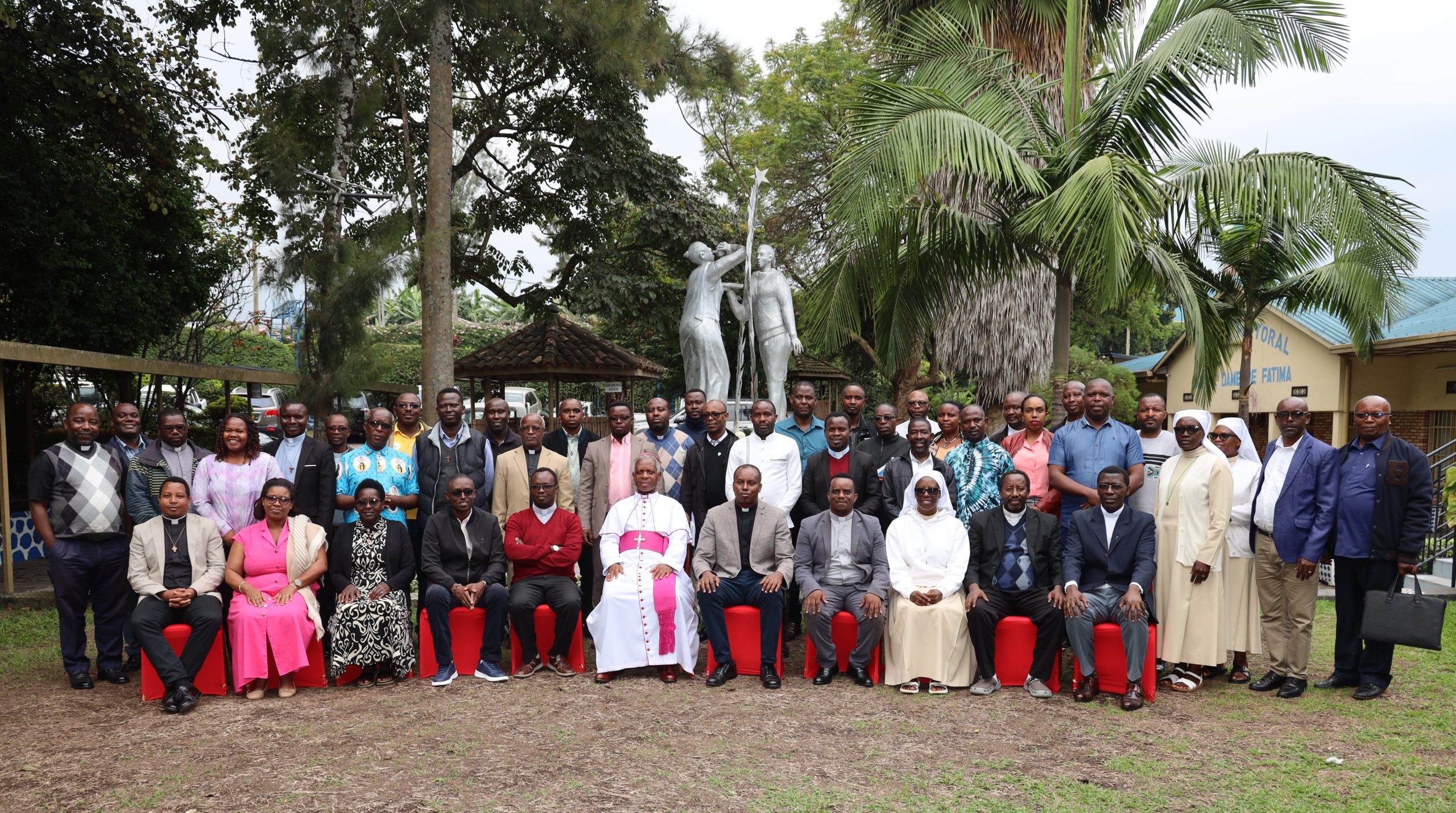As part of its mission of promoting human dignity for all, Caritas Rwanda continues to intensify its efforts to mobilize the community and respond to the needs of the most vulnerable. In this regard, the organization organized a learning visit to Ruhengeri Diocese from July 8 to 9, 2025, with the aim of strengthening strategies for promoting the Charity and Mercy Month. During this learning trip, Caritas Ruhengeri was congratulated for winning the first place in fundraising for the Charity and Mercy Month in 2023 and 2024.
Father Oscar Kagimbura, Secretary General of Caritas Rwanda, explained the goal of this learning visit by recalling that the bishops established the Charity and Mercy Month to fortify Caritas Rwanda so that it could help the most vulnerable without only depending on external funding. The contributions raised during Charity and Mercy Month go towards a fund that quickly help people impacted by epidemics or natural catastrophes. “For instance, in 2023, during the flood disasters in the Western and Northern provinces, Caritas was able to act quickly while seeking other partners,” Father Oscar Kagimbura emphasized.
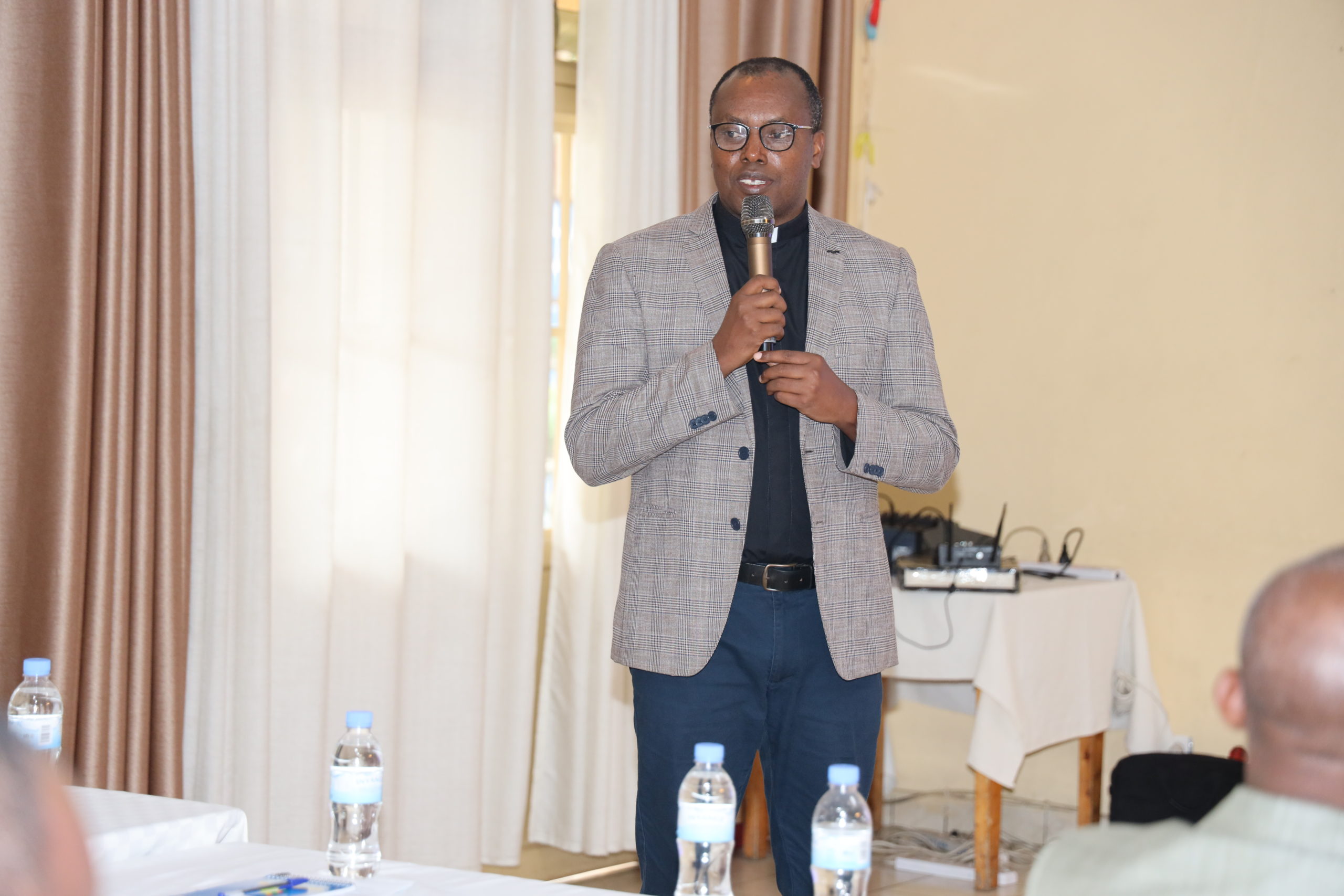
One-quarter of the Charity and Mercy Month funds remains in the parish Caritas, and three-quarters of the funds are sent to the diocesan Caritas, which keeps half and sends the other half to Caritas Rwanda.
Some of the fundraising strategies used in the Diocese of Ruhengeri for the Charity and Mercy Month mobilization
Father Narcisse Ngirimana, Director of Caritas Ruhengeri, stated that to ensure the success of the Charity and Mercy Month campaign, volunteers must first be mobilized, the activities to be carried out must be established, volunteers must be prepared to support and understand the purpose of the campaign, and the contributions must be delivered to their destination. Father Narcisse added that another factor that has contributed to the increase in contributions for the Charity and Mercy Month is the Bishop’s engagement in this activity: “During various meetings, the Bishop encourages us to mobilize for the Charity and Mercy Month, and we share his message with others, depending on the institutions we represent.”
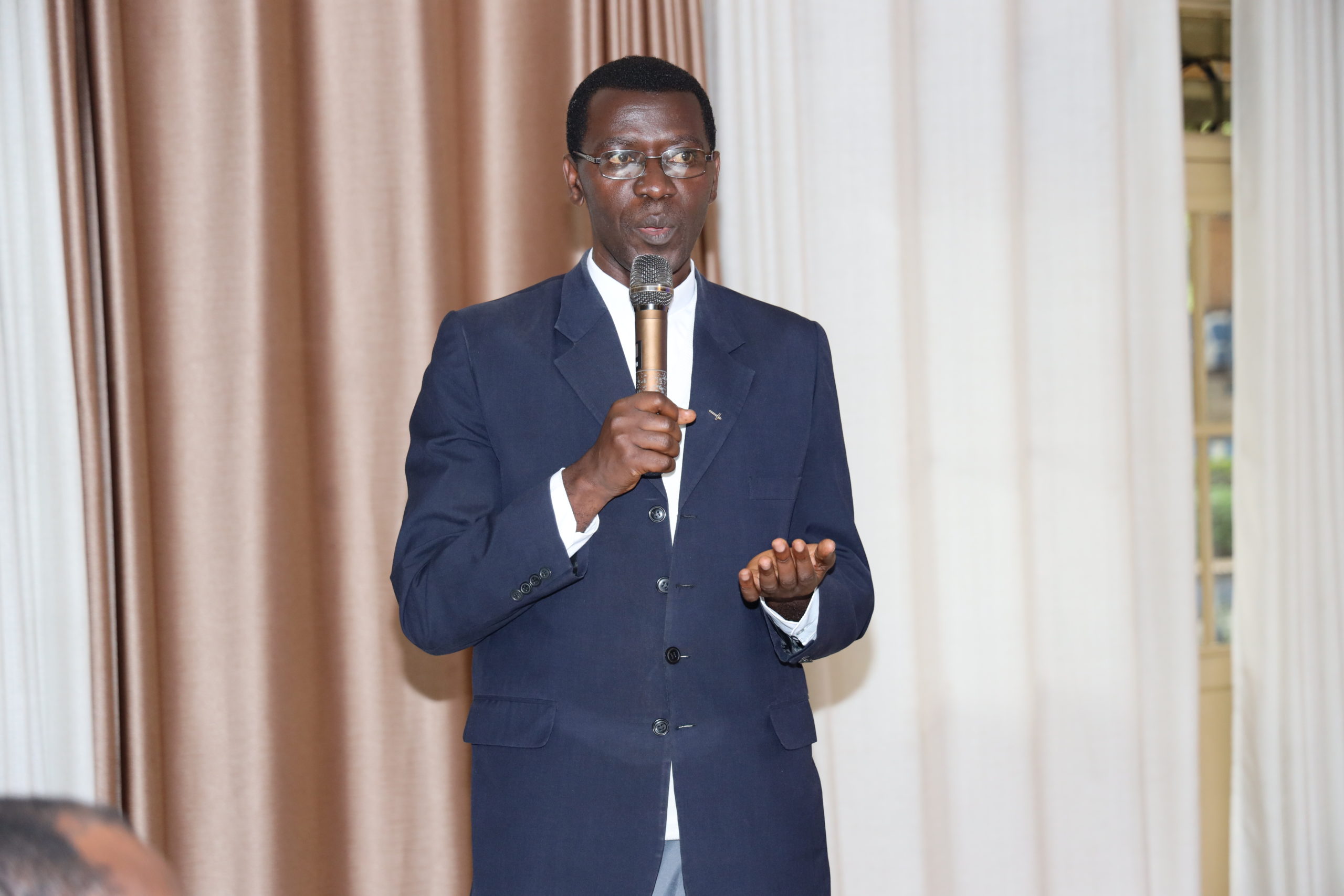
In his presentation about the progress of contributions for the Charity and Mercy Month, Bazasekabaruhe Jean Damascène, responsible for the Department of Social Welfare of the Caritas Ruhengeri, explained that the preparations for the Charity and Mercy Month begin in November during the Caritas Ruhengeri General Assembly. The day before this assembly, the results of the contributions are presented to the Bishop to help them reflect on strategies for the following year. During the General Assembly, these results are also presented so that parishes can see their contributions, new strategies can be adopted, and then each parish can make a commitment.
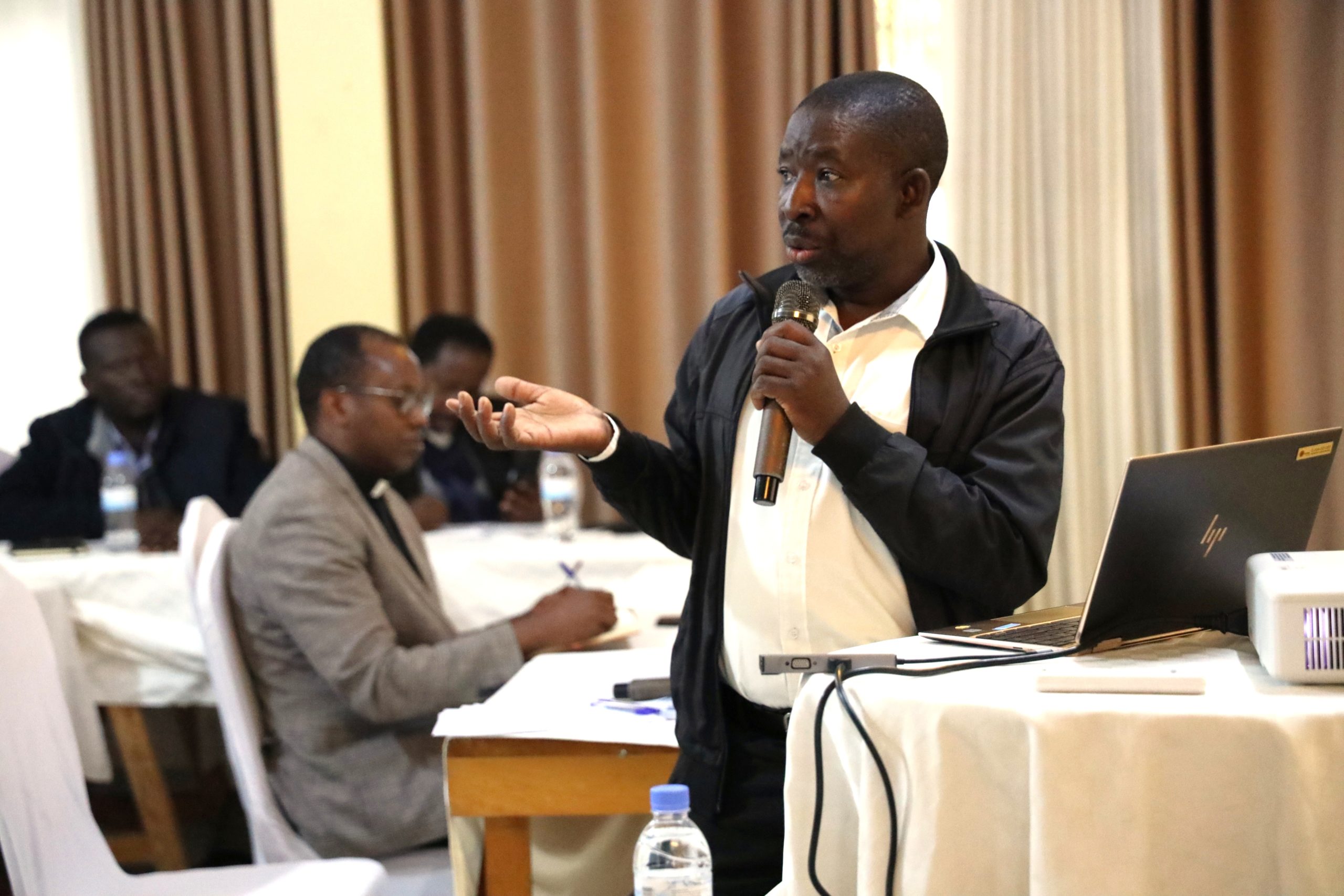
During this study tour, those involved in the Charity and Mercy Month campaign in the Ruhengeri Diocese also shared their experiences on the strategies they use, including reaching out to Christians and other people of goodwill to explain them the purpose of this activity, and making it their own. This includes starting with basic ecclesial communities and engaging in door-to-door mobilization to encourage everyone to contribute to the Charity and Mercy Month. In some parishes, during Mass, Christians receive envelopes to return with their contributions for the Charity and Mercy Month. Volunteers also visit businesses, workplaces, markets, and other locations to encourage everyone to participate in this activity.
“Sometimes, when passing by a Christian’s farm, we see birds plundering and we pick up a small stone to chase them away, and this motivates the christian. Thus, we invite him/her to contribute to the Charity and Mercy Month after the harvest”, said Father Eugène Twizeyeyezu, parish priest and Caritas chaplain in the Bumara parish.
These strategies, and many others not mentioned, have enabled the Ruhengeri Diocese to move from 6th place in 2021 to 1st place in 2023 and 2024 for the collection of contributions for the Charity and Mercy Month.
Advice from the Bishop of the Ruhengeri Diocese
In his speech, Bishop Vincent Harolimana of the Ruhengeri Diocese thanked the participants for choosing Ruhengeri as venue for this learning visit. He added that considering the nature of today’s society and the pace of development, it is wise to help the marginalized and other vulnerable people so that they can regain the dignity with which God created them. “These activities require a lot of energy. This is why we must use the wisdom God has given us to carry them out well, in order to collect Charity and Mercy Month contributions that will help us fulfill the mission God has entrusted to us as a Church. This mission is within everyone’s reach, which is why we must combine our efforts,” said Bishop Vincent Harolimana.
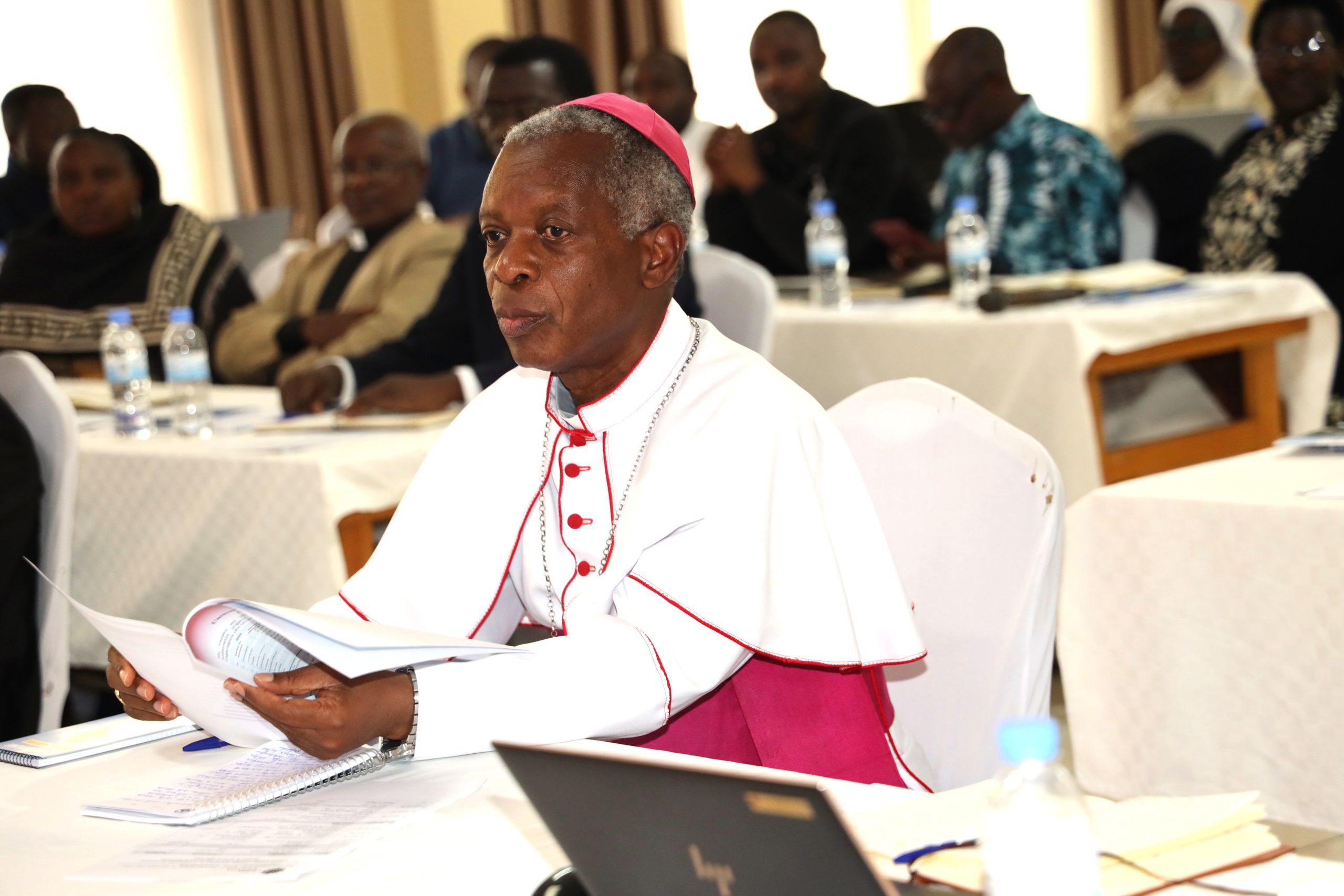
Bishop Vincent reiterated that the foundation on which to build is to remind Christians of the legacy of love that our Lord Jesus Christ left us before returning to heaven: “Remind them to have a Jesus’ heart. This is the legacy he left us. This implies selfless dedication, especially to the most vulnerable, the poor, and those in distress. Other actions are the fruit of the feeling of being called, as Christians, to have a heart like Jesus’.”
During this learning, the Ruhengeri Diocese received a recognition trophy for achieving first place in the 2023 and 2024 in fundraising for the Charity and Mercy. In 2024, Caritas Ruhengeri was ranked first with Rwf 35,197,623 of contributions, followed by Caritas Cyangugu, which raised Rwf 21,313,555.
Recommendations from the exchange visit to the Diocese of Ruhengeri
At the end of this learning visit, the participants committed to (1) increasing contributions for the Charity and Mercy Month by 20% for the year 2025, excluding the Diocese of Ruhengeri. Furthermore, there should be (2) synergy between the Bishop, parish priests, Caritas chaplains, and school directors in community mobilization during the Charity and Mercy Month. Other strategies include (3) promoting the Charity and Mercy Month in both public and private schools; (4) motivating the Charity and Mercy Month volunteers through providing them uniforms, badges and facilitating their transportation and refreshments; and (5) reporting to Christians and other people of goodwill on the funds collected and their utilization.


